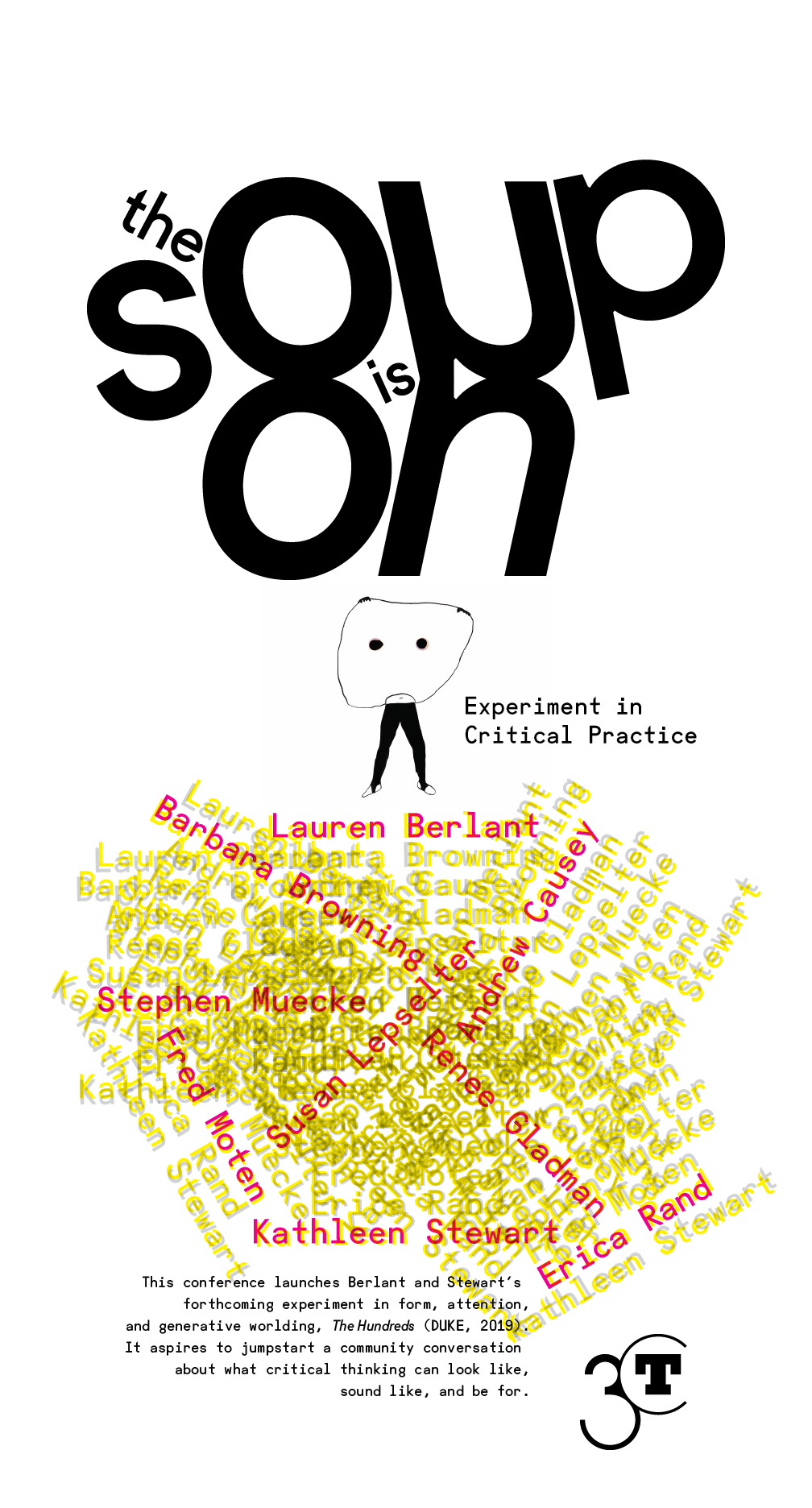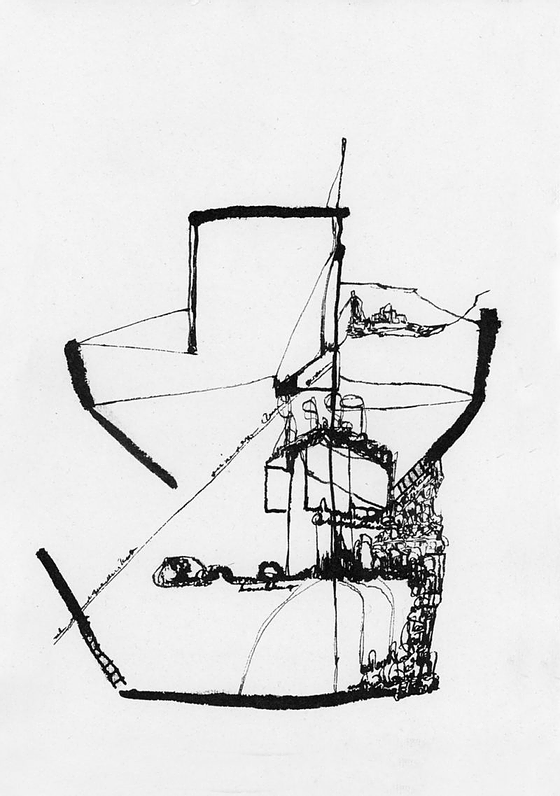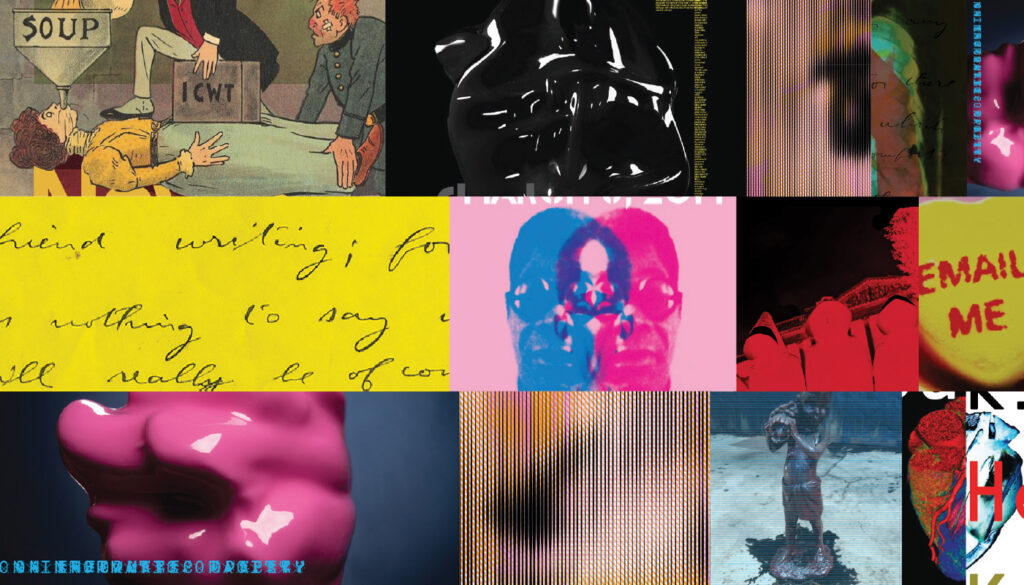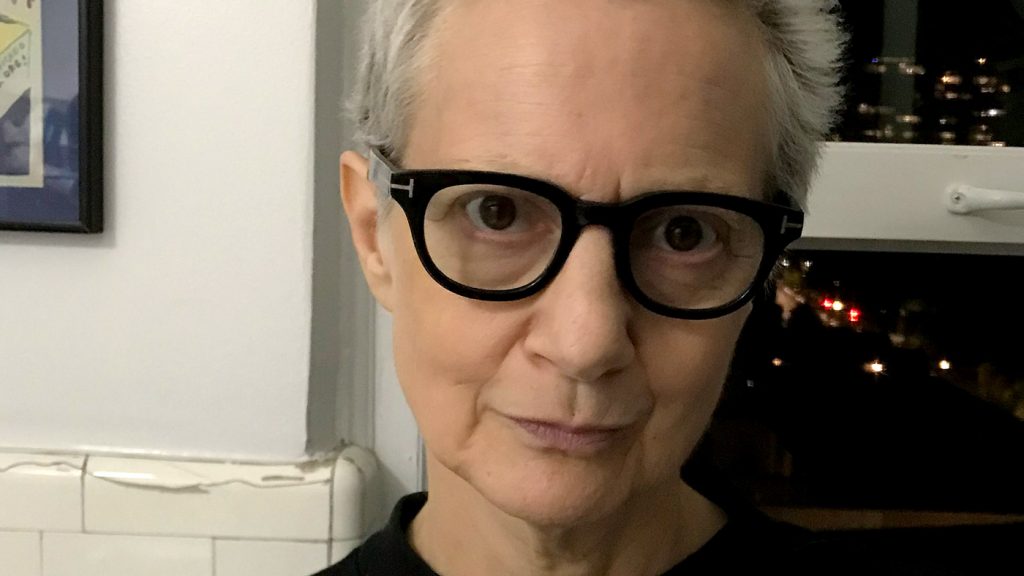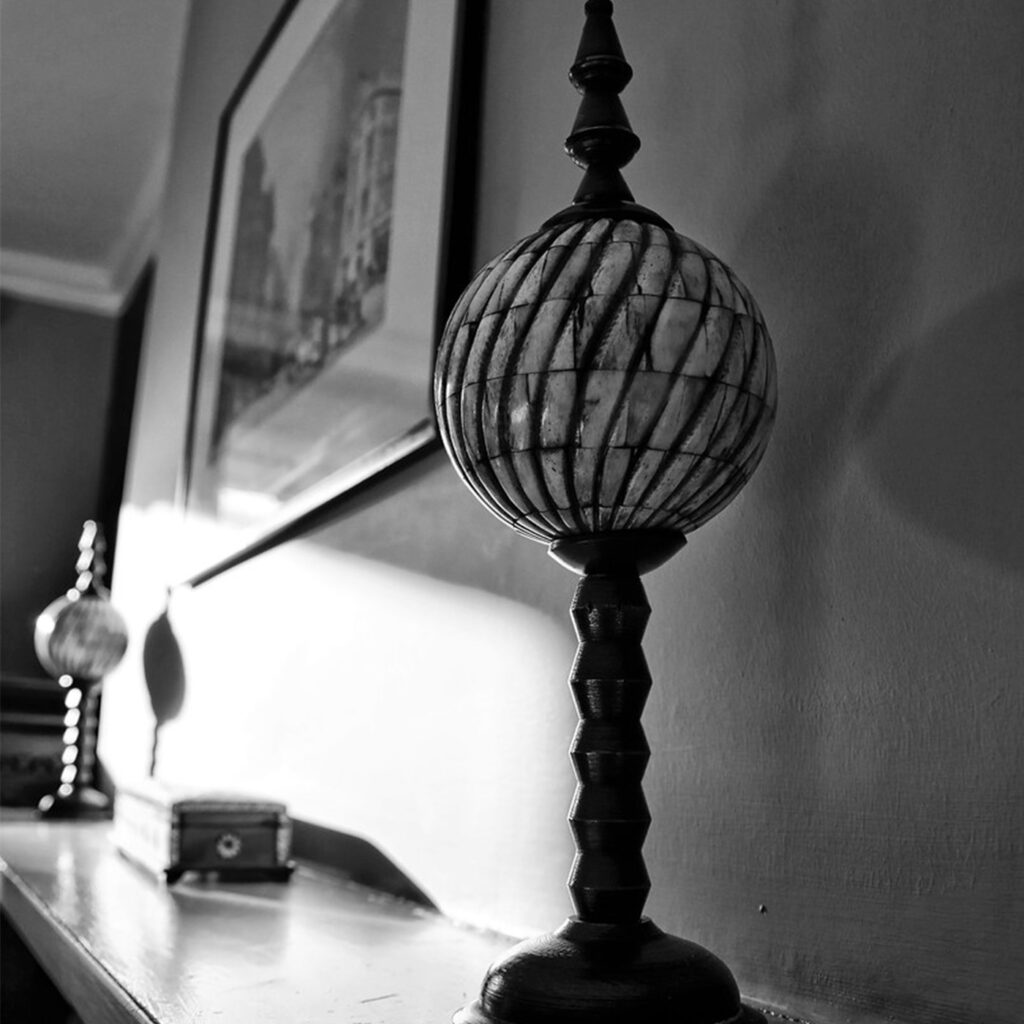On Collaboration, Engagement & Attention
The Hundreds is a poetic experiment in sensing and writing a new ordinary. This ordinary is not just what you can take for granted, but the zone of ongoingness you wake up into and move through, where forms of life, including concepts, appear through encounters with the force of the world. It includes ongoing practices and intuitions in their usual spaces and gestures, plus whatever induces the uptake of interest. Stewart, an ethnographer, and Berlant, a critical theorist, wanted to develop a way to get at the core of scenes, episodes, and exchanges. They made up ways of following things and amplifying their resonance into written environments. “Writing out” promotes a slower feeling out. What is a concept if it’s no longer seen as a truth-effect? What is theory once it’s seen as a training in absorption, speculation and framing? What is an encounter once it’s seen as an incitement to composition? What can be done with the love, judgment, structural violence and stranger intimacy appearing at the incidental scale?
The book contains a hundred “hundreds.” Each of them is a hundred words or a multiple of a hundred words long. Each piece tries to get at something, to capture or move with a situation. Story problems, incidents, glances, tone shifts, hooks pulling the writing somewhere or swerving to one side of a thing that’s happening: history extending from anywhere but not summing up the world. The discipline of the hundred words is expansive and severe. People matter as well as pets, objects in the house, signs, smells and atmospheres: everything’s a leftover, and every leftover a potential event. There are four experimental indexes, too, composed in response to the book. Each index processes how the poems see things, responding to the sights in their own way. Vacant back pages await the reader’s own index.
This conference launches Lauren Berlant and Kathleen Stewart’s The Hundreds (Duke, 2018), their forthcoming experiment in form, attention, and generative worlding. Some “Soup is On” experimenters wrote an index for the book, reorganizing it in their own register and mode. All of them are co-travelers attempting to write engaged modes of subjectivity, observation, attachment, and plural, relational identity into being. Their collaborative effort aspires to jumpstart a community conversation about what critical thinking can look like, sound like, and be for.
Listen to Lauren Berlant discuss the conference on the Critical Theory podcast.
FRIDAY, JUNE 1
Heuristic Day 1
9:00am — Breakfast
9:45am — Welcome
10:00am — Experiment 1: The Hundreds, a book, a form and a concept
Lauren Berlant and Kathleen Stewart
A look into the collaborative writing between Berlant and Stewart and collective writing exercises. Stewart and Berlant will read from The Hundreds with a focus on the question of writing and the generation of concepts that are not only abstractions. They will also orchestrate collective writing exercises for real-time collaborative conceptual generation.
12:00pm— Lunch workshop: The Speculative, the Utopian, the Descriptive
Ben Anderson
I can’t help but dream about a kind of criticism that would try not to judge but to bring an oeuvre, a book, a sentence, an idea to life; it would light fires, watch the grass grow, listen to the wind, and catch the sea foam in the breeze and scatter it. It would multiply not judgments but signs of existence; it would summon them, drag them from their sleep. Perhaps it would invent them sometimes – all the better. All the better.
I’ve always loved Foucault’s dream. Beginning from its promise that we might learn to encounter and attune to worlds differently and working with some of the concepts that accompany recent interest in affects, moods, emotions, structures of feeling, atmospheres and tones, this workshop will explore what concepts of and for affective life might do as the social sciences and humanities are newly receptive to and animated by dreams of other kinds of criticism. We’ll explore the changing tasks and desires and moods of conceptual work in relation to affective life amid these other dreams – to transform, to listen, to describe, to speculate, to disturb, to disrupt, to diagnose, to hold, to think anew, to multiply associations, to become attuned … amongst many others. And we’ll use some games from improvisational theatre alongside some conversation and movement to help us change the mood. Please bring a concept that has stayed with you and you might struggle to give up, or a concept that has become newly fragile, or a recently encountered or invented concept that has begun to resonate with you. I may bring structures of feeling or hope or modes of uncertainty.
1:45pm — Experiment 2: Curiosity & Fear
Andrew Causey and Susan Lepselter
Our panel asks how heightening our sense of adjacency can transform concepts into living objects we move into and around. We hook into curiosity as a compulsive root urge. We want to perceive, attend to, and engage with varied metaphors’ spatial relations as an invigorating and affective path to a way IN. We also look at fear, curiosity’s shivering twin, in the hopes of creating or encountering other links that will lead to a deeper sense of presence in often unexamined experiences. In this workshop filled with drawing and writing, we will explore ways of pursuing curiosity, and fear, and how to rearticulate and redraw what we find there. We will seek to redeem unabashed curiosity, not to flee from it.
3:15pm — Coffee break
3:30pm — Workshop: Accept All Changes
Barbara Browing with Imre Lodbrog
This session could alternatively be called: Inappropriate Intimacies, Show-and-Tell, or Truth-or-Dare. We aim to encourage experiments in collaborative writing that move through other expressive forms. The workshop presenters will recount their own process of responding to each other’s non-literary expressions (particularly dance and song) in writing, and vice versa. We’ll also try to help participants come up with intermedia strategies for showing, telling and daring.
5:00pm — Reception
SATURDAY, JUNE 2
Heuristic Day 2
9:00am — Breakfast
10:00am — Workshop: Indexing Open Space
Renee Gladman
In this workshop, we will experiment with using indexing as a way of reaching into the unknown, the invisible, into things that sit outside of language. Through conversation and a few short writing exercises, we will make bridges, uncover ley lines, and ask impossible questions about seeing and thinking. Some examples of creative indexing are Helen Mirra’s Cloud, the, 3 and Karen Reimer’s Legendary, Lexical, Loquacious Love.
11:15am — Experiment 3: What Does It Mean that ‘The Soup Is On’?
Fred Moten and Stephen Muecke
Stephen Muecke – Reclaiming the Arts of Paying Attention
Fred Moten – TBA
1:00pm — Lunch
2:00pm — Workshop: Object Disturbance and and Hip Checks
Erica Rand
In this workshop we ask people to come in with something they want to change directions on. Maybe it’s a story you’ve written or tell all the time that you realize isn’t in the can like you thought it was. Maybe it’s a project originally guided by training or habits that you now want to depart from. Maybe it’s something that you like just fine, and you are ready for a hip check, knocking your readers, or letting yourself be knocked, off course. Maybe you want to be brave/r somehow. Or something else. The workshop will include some small-group planning time, some writing time, and then some time to talk about it after trying it.
Lauren Berlant is the George M. Pullman Distinguished Service Professor of English at the University of Chicago. Her most recent books are Cruel Optimism (2011), Desire/Love (2012), and, with Lee Edelman, Sex, or the Unbearable (2014). She is currently working on flatter affects like inconvenience and humorlessness. She recently co-edited a volume of Critical Inquiry with Sianne Ngai, called “Comedy, An Issue” (2017). She blogs at Supervalent Thought and is also a founding member of the art/activist group Feel Tank Chicago.
Kathleen Stewart is an anthropologist teaching at the University of Texas, Austin. Her writing is a series of ethnographic experiments aimed at finding ways to approach the variegated and energetic poesis of ordinary things. Her books: A Space on The Side of the Road: Cultural Poesis in an “Other” America (Princeton 1996) and Ordinary Affects (Duke, 2007).
Andrew Causey PhD, Associate Professor of Cultural Anthropology (Humanities, History, and Social Sciences Department) has been at Columbia College Chicago since 2001. He received his PhD in Anthropology from The University of Texas, Austin, in 1997 after completing his ethnographic fieldwork in North Sumatra, Indonesia with the assistance of Social Science Research Council grant and a Fulbright IIE Scholarship. Causey’s research interests include the fields of material culture, art, and tourism, all of which came together in his research with Toba Bataks on Samosir Island. He sought to understand the nature of interactions between western backpack travelers and Toba Bataks, particularly how they construct notions of self- (and other-) identities via economic transactions. His ethnographic monograph, Hard Bargaining in Sumatra: Toba Bataks and Western Tourists in a Souvenir Marketplace, was published by the University of Hawai’i Press in 2003. In addition to this book, Causey has published numerous articles on Toba Batak life and culture, on American popular culture, on qualitative research methods, and on anthropological pedagogy.
His most recent book Drawn to See: drawing as an ethnographic method (2016, University of Toronto Press) describes how ethnographers and other social scientists can use line drawing to better see and understand the world around them. In 2018, this work was awarded an “Outstanding Academic Title” by Choice, the official journal of the American Library Association. His current work examines the affective intersections between dreams and everyday life with particular interest in constitutive alliances created when objective experience merges with analogic/metaphoric interpretation.
Susan Lepselter is Associate Professor of Anthropology at Indiana University. She joined the department of Anthropology in 2015 after teaching since 2007 in IU’s department of American Studies and the former department of Communication and Culture. She is also affiliated with IU’s departments of Folklore and Cultural Studies. She earned her PhD in Anthropology and Folklore at University of Texas at Austin in 2005. Her interests include poetics, narrative, affect and experiences of the weird in America, especially in captivity narratives, uncanny conspiracy theories and memories of UFO encounters. Her book, The Resonance of Unseen Things: Poetics, Power, Captivity and UFOs in the American Uncanny (2016, University of Michigan Press) was awarded the 9th Annual Gregory Bateson Prize in Cultural Anthropology. She has also written on topics such as hoarding and global Internet captivity narratives. Her newest project involves stories on social media by girls with diagnoses of neurodivergent disorders. She is working on a book of poetry about encounters between animals and humans.
Fred Moten teaches courses and conducts research in black studies, performance studies, poetics and critical theory. He is author of In the Break: The Aesthetics of the Black Radical Tradition (University of Minnesota Press, 2003); Hughson’s Tavern (Leon Works, 2009); B. Jenkins (Duke University Press, 2010); The Feel Trio (Letter Machine Editions, 2014), The Little Edges (Wesleyan University Press, 2015), The Service Porch (Letter Machine Editions, 2016) and a three-volume collection of essays whose general title is consent not to be a single being (Duke University Press, 2017, 2018). Moten is also co-author, with Stefano Harney, of The Undercommons: Fugitive Planning and Black Study (Minor Compositions/Autonomedia, 2013) and A Poetics of the Undercommons (Sputnik and Fizzle, 2016) and, with Wu Tsang, of Who touched me? (If I Can’t Dance, I Don’t Want to be Part of Your Revolution, 2016). Moten has served on the editorial boards of Callaloo, Discourse, American Quarterly, and Social Text; as a member of the Critical Theory Institute at the University of California, Irvine; on the board of directors of the Center for Lesbian and Gay Studies, City University of New York; and on the advisory board of Issues in Critical Investigation, Vanderbilt University.
Prior to joining the NYU faculty, Moten served on the faculties of the University of Iowa, the University of California, Santa Barbara, the University of California, Irvine and the University of Southern California. In addition, Moten was the inaugural Helen L. Bevington Professor of Modern Poetry at Duke University and Distinguished Professor of English at the University of California, Riverside. Moten has been the Whitney J. Oates Fellow in the Humanities Council and the Center for African American Studies at Princeton University, the Sherry Memorial Visiting Poet at the University of Chicago and a Visiting Artist at the Milton Avery Graduate School of the Arts, Bard College. In 2016 he was awarded a Guggenheim Fellowship and the Stephen E. Henderson Award for Outstanding Achievement in Poetry by the African American Literature and Culture Society. In 2014, Moten’s The Feel Trio was a poetry finalist for the National Book Award, the Los Angeles Times Book Prize and was winner of the California Book Award; and in 2016 his The Little Edges was a finalist for the Kingsley Tufts Poetry Award.
Stephen Muecke is Jury Chair of English Language and Literature in the School of Humanities at the University of Adelaide, South Australia. He is a Fellow of the Australian Academy of the Humanities. He is a writer specializing in innovative cross-generic work; a recent publication is The Mother’s Day Protest and Other Fictocritical Essays (Rowman and Littlefield International, 2016). He also works on theory; with a special edition of New Literary History (“Recomposing the Humanities—with Bruno Latour”), 2016. He has a track record of work with Indigenous people (a new edition of Paddy Roe’s Gularabulu: Stories from the West Kimberley, UWA Publishing, 2016), and current research involves ethnographic documentation of Goolarabooloo county north of Broome, Western Australia, using a ‘multirealist’ approach. He has translated two books by Isabelle Stengers: Another Science is Possible, and (with Tobie Nathan), Doctors and Healers (both Polity, 2018).
Ben Anderson is a Professor in Human Geography at Durham University (Department of Geography). Over the past ten years, his research has focused on how affects such as emergency, hope and boredom are part of contemporary political and cultural life. In particular, he’s long been fascinated by how hopes linger, fade, fall apart, and return as people make and inhabit worlds. His monograph on theories of affect –Encountering Affect: Capacities, Apparatuses, Conditions (Routledge) – was published in 2014. His next monograph will stay with the affective lives of neoliberalisms, or, rather, the structures of feeling and atmospheres through which neoliberalisms are (de)composed and become palpable.
Barbara Browning teaches in the Department of Performance Studies at NYU. She is the author of the academic books Samba: Resistance in Motion, Infectious Rhythm: Metaphors of Contagion and the Spread of African Culture, and Caetano Veloso: A Foreign Sound, as well as the fictocritical novels The Correspondence Artist, I’m Trying to Reach You, and The Gift (or, Techniques of the Body).
Renee Gladman is a writer and artist preoccupied with lines, crossings, thresholds, and geographies as they play out in the interstices of poetry and prose. She is the author of eleven published works, including a cycle of novels about the city-state Ravicka and its inhabitants, the Ravickians—Event Factory (2010), The Ravickians (2011), Ana Patova Crosses a Bridge (2013), and Houses of Ravicka (2017)—as well as the recently released Prose Architectures, her first monograph of drawings, and Calamities, a collection of linked essay-fictions on the intersections of writing, drawing, and community, which won the 2017 CLMP Firecracker Award for Creative Non-Fiction. Recent essays and visual work have appeared in The Paris Review, Granta, Harper’s, Stonecutter, and Poetry Magazine. A 2014-15 fellow at Radcliffe Institute for Advanced Study at Harvard University and recipient of a 2016 Foundation for Contemporary Arts Grant and a 2017 Lannan Foundation Writing Residency in Marfa, TX, she makes work in New England.
Erica Rand is the Whitehouse Professor of Art and Visual Culture and of Gender and Sexuality Studies at Bates College. Her writing includes Barbie’s Queer Accessories (1995), on manufacture and meaning-making, The Ellis Island Snow Globe (2005), a queer, anti-racist tour of Ellis Island and the Statue of Liberty, and Red Nails Black Skates: Gender, Cash, and Pleasure On and Off the Ice (2012), a collection of short essays grounded in participant-observation on adult figure skating. She is currently working on a project in indirections and redirections called Hip Check: On Race, Queer Gender, and Experiments in Writing.
Anjali Arondekar
Kris Cohen
Edgar Garcia
Chicu Reddy
Hal Sedgwick
Ken Wissoker
